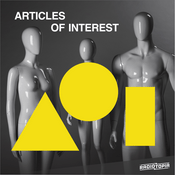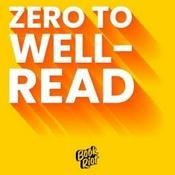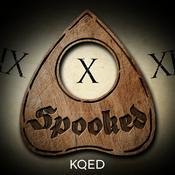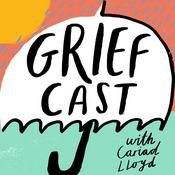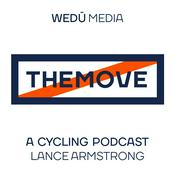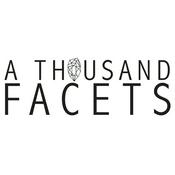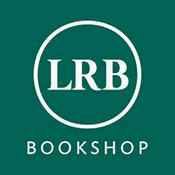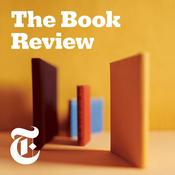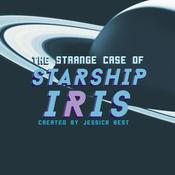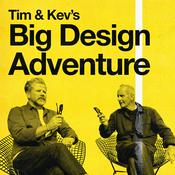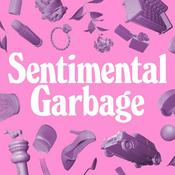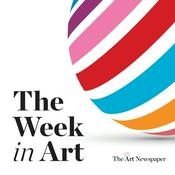154 episodes

Hydronics: The OG HVAC - Part 1
23/12/2025 | 1h 24 mins.
In this episode we are once again diving into the world of hydronics systems and air-to-water heat pumps. These systems are poised to transform how we heat and cool homes and buildings in the US. In this Part 1 of a two part series, we’ll be tracing the historical "divergence" that pushed the US toward forced-air ducting while Europe stayed with the efficiency of water to move heat around inside buildings - remember that “moving heat” includes cooling. We basic components and function of hydronic systems in a guided component-level tour. We explain the potential to combine space heating and cooling with hot water production and the importance of simple components like buffer tanks that allow for load "decoupling"—the ability to store thermal energy and shift your home's energy loads to times when electricity is cheapest or the grid is less stressed.Benjamin JewellBenjamin Jewell is the Hydronics Head of Product & Engineering (North America) at Carrier Global, bringing expertise in product lifecycle and engineering methodologies. Benjamin has a focus on collaborating with likeminded people looking for mentorship, resources, or support for solving tough problems that make the world a better place.TeamHosted by Kristof IrwinEdited by Nico MignardiProduced by M. Walker

Beyond the View
01/12/2025 | 1h 31 mins.
Windows are pivotal to the lived experience of a home. They impact the basic aesthetic and provide natural light, views, ventilation, and safety. However, they are also nearly always the largest single source of heat loss and gain - it's hard to overstate the importance of getting windows right, as they play a huge role in a building's energy use. Today, we're going to take a deep dive into high-performance architectural windows, exploring the technology that lets us control unwanted heat flow through conduction, convection, and radiation. We'll be looking at the technical specs U-factor, Solar Heat Gain Coefficient (SHGC), air leakage and visual transmittance, as well as the fundamental differences between US and European manufacturing philosophies.Article from Passive House Accelerator:How Windows Make (Or Break) Wall PerformanceAndrew DrydenAndrew Dryden is the Owner of Pivot Windows LLC. He is dedicated to promoting sustainable construction practices that enhance energy efficiency and overall building performance. His journey began during a transformative sabbatical year in the Pacific Northwest, where he constructed his own high-performance home. This hands-on experience ignited his passion for innovative building solutions and laid the foundation for Pivot Windows LLC.At Pivot Windows, Andrew is at the helm of several key projects aimed at increasing the accessibility of high-performance windows for residential and commercial clients. His strategic approach to program management ensures that each project is executed with precision, from initial concept to final installation. By fostering strategic partnerships within the industry, Andrew is able to source cutting-edge products that meet the evolving needs of the market while maintaining affordability for his clients.TeamHosted by Kristof IrwinEdited by Nico MignardiProduced by M. Walker

Cementing Carbon
31/10/2025 | 1h 1 mins.
This is a crossover episode with the Spring Street Passive House education and advocacy series.Welcome to a pivotal conversation on the future of our built world. The concrete industry, indispensable for modern infrastructure, is facing an urgent mandate: reconcile its foundational role (pun) with its role as a source of environmental pollution. The scale of the emissions are staggering - if global concrete manufacturing were a country it would be the 3rd largest emitter, behind only China and the US (!). The good news is that with this a motivation the global concrete industry is now rethinking its entire lifecycle. In this episode, host Kristof sits down with John Mead, one of the founders of Solid Carbon to talk about efforts to transform concrete from a carbon emitter into a "net carbon sink. By converting waste carbon materials, wood being one, into a mass of solid carbon through pyrolysis and then using this carbon sink in a durable material through concrete we are making a huge impact in an industry that needs to make some powerful shifts in the years ahead.John MeadJohn Mead is an entrepreneur with 20 years leading companies focused on sustainable construction. He has a bachelor's degree in mechanical engineering from Oregon State University, and an MBA from George Fox University. He is CEO of Solid Carbon Inc., an Oregon company specializing in the commercialization of biochar-based ingredients for the ready mixed concrete industry. Solid Carbon's mission is to transform the concrete industry into a climate solution with climate smart concrete solutions to sequester carbon in the built environment. When not working on climate-friendly construction businesses he can be found coaching high school rugby, camping in the Cascades, gardening and admiring historic and modern architecture.Solid Carbon LinkedInTeamHosted by Kristof IrwinEdited by Nico MignardiProduced by M. Walker

Systems Thinking to Save the World - 50 years of Serious Commotion
21/10/2025 | 1h 24 mins.
This may be the ultimate systems thinking interview. Beyond building science at the site scale, this is systems thinking to save the world. Gail Vittori and Pliny Fisk III have their fingerprints all over the structural ideologies for ways of thinking that underlie what we now think of as the fields of sustainability, greenbuilding, indoor health and well-being and more. Enjoy this thoughtful unpacking of ideas that span from systems thinking at the scale of the planet to human society to industry, products and materials. If you’re not familiar with Pliny Fisk III and Gaily Vittori, Max’s Pot, the Center for Maximum Potential Building Systems, or the Global Dreamlab, it’s about damn time that you are. Buckle up and enjoy this wild and fascinating ride with two of the brightest early lights in environmental sustainability in the AEC and beyond.Pliny Fisk IIIPliny Fisk III is a pivotal figure in the sustainability movement, whose career in architecture, landscape architecture, and the systems sciences spans more than four decades. He has dedicated his career to developing replicable prototypes, protocols, and policy initiatives that challenge conventional wisdom in building design, engineering, materials, and planning. His seminal life cycle-based protocols helped shape the first green building programs, and he collaborated on federal efforts like the Greening of the White House and the Greening of the Grand Canyon. He is also an inventor and the CEO and founder of two technology companies, Sustainable Earth Technologies and the EcoInventorium.Pliny’s influence extends into academia and policy, having held faculty positions at several major universities and served as an advisor to foundations like MacArthur and Gates. His policy initiatives include the Austin Green Building Program and the AIA’s Environmental Resource Guide, establishing new protocols with broad implementation. His impact has earned him numerous honors, including The Lewis Mumford Award and the U.S. Green Building Council’s Sacred Tree Award. Pliny has been recognized by Metropolis Magazine as a Visionary and by Texas Monthly as one of “35 People Who Will Shape Our Future.”Gail VittoriGail Vittori leads a life of discovery, of adventure, of collaborating with incredible people and finding opportunities to make a little bit of a movement of the needle on things that she is passionate about. Gail has been a key force in advancing green building policies, protocols, and prototypes at the local, state, and national levels, with a particular emphasis on the critical link between sustainable design and human health1. In 1989 she developed the initial conceptual framework for what would become the City of Austin’s Green Builder Program, recognized as the first green building program globally. Building on this foundational work, she went on to convene the Green Guide for Health Care in 2001, an initiative that catalyzed a revolution in the design, construction, and operations of healthcare facilities. Her expertise led her to serve as the Founding Chair of the LEED for Healthcare committee from 2004 to 2008, and she also co-authored Sustainable Healthcare Architecture.Gail has held several influential leadership positions in the sustainable building community. She served on the USGBC Board of Directors from 2002 to 2010, including a term as Board Chair in 20095. She also dedicated eight years to the Green Business Certification Inc. (GBCI) Board of Directors from 2011 to 2019, where she served as Board Chair from 2013 to 2019. Currently, she is the Vice-Chair of the Health Product Declaration Collaborative Board of Directors. Her vision and impact have earned her significant recognition, including the 2015 Hanley Award for Vision and Leadership and the 2020 USGBC’s Kate Hurst Leadership Award. Additionally, she was featured as an Innovator: Building a Greener World in TIME Magazine and was a Loeb Fellow at Harvard University’s Graduate School of Design.TeamHosted by Kristof IrwinEdited by Nico MignardiProduced by M. Walker

Navigating the Path to Passive
27/9/2025 | 1h 7 mins.
This is a crossover episode with the Spring Street Passive House education and advocacy series.How do Passive House enclosure decisions actually happen? There’s a stubborn storyline that passive house designs go “too far” and result in a wholly different, and painful, design and construction process. The reality is that designing and building a Passive House is not all the different from building any project. In both cases you are working with a blend of the rigor of building science, the skill and craftsmanship of the construction team, the realities of project specifics like site, climate, budget, and schedule, and the personalities of the people involved. All of this then gets organized and systematized within the context of the Passive House standard of care which simply asks that we do all we can to ensure that a good design translates into long-lasting positive outcomes.Our guest today is Cameron Caja, CPHC. Hearing all he’s doing in the industry/world and the level of expertise he brings is an good reminder of the many intelligent caring people working tirelessly and with great resolve in the AEC today. Hearing his intelligence, wisdom and warmth is encouragement not lose sight of the goal of better buildings, and to not lose heart - we can do this.Links from the Episode:Spring Street Passive HouseEarth AdvantagePHIUSPHICameron CajaCameron Caja is the Business Development Manager at Positive Energy, a role that utilizes the skills he gained through diverse cultural landscapes and his passion for sustainable building practices. His story began as a builder's apprentice in high school, laying the foundation for a career marked by a deep appreciation for construction and design.Cameron studied at National Central University in Jhongli, Taiwan, and Soonchoonhyang University in South Korea, to understand how culture, language, and policy can guide development of the built environment. His studies continued in Japan, Thailand, and Russia, delving into the intersections of politics, housing, and food systems. Cameron earned his Masters degree in Education from the University of Arkansas, where he later managed specialized international education programs for the Graduate School.Sustainability, human and environmental health have always been at the heart of Cameron's endeavors. As a licensed residential builder and the owner of Polaris High Performance Homes, he committed that 100% of his projects would at least meet Energy Star, EPA Indoor airPlus, and WaterSense certifications. As one of the first Certified Passive House Consultants in the state of Arkansas, he actively contributes to advancing building standards in Kansas, Oklahoma, Arkansas, and Missouri as the Central Region Representative of the Phius Alliance Council. Cameron's commitment to community service is evident in his roles with the Habitat for Humanity of Washington County Construction Committee, Tri Cycle Farms Food Recovery Program, and the Omni Center for Peace, Justice, and Ecology. These organizations allow him to extend his impact beyond the realm of building science, addressing crucial social issues like homelessness and food insecurity.TeamHosted by Kristof IrwinEdited by Nico MignardiProduced by M. Walker
More Arts podcasts
Trending Arts podcasts
About The Building Science Podcast
Listen to The Building Science Podcast, Table Manners with Jessie and Lennie Ware and many other podcasts from around the world with the radio.net app

Get the free radio.net app
- Stations and podcasts to bookmark
- Stream via Wi-Fi or Bluetooth
- Supports Carplay & Android Auto
- Many other app features
Get the free radio.net app
- Stations and podcasts to bookmark
- Stream via Wi-Fi or Bluetooth
- Supports Carplay & Android Auto
- Many other app features


The Building Science Podcast
download the app,
start listening.



